Do you struggle with constantly overeating? Do you feel like you don’t have a brake pedal and thinking to yourself, “I can’t stop eating, what is wrong with me?”
In this post, I’m going to break down how you can learn to find your hunger cues, listen to them and learn to naturally stop eating when full & satisfied (most of the time)!
I know that this can seem easier said than done – believe me, Gorgeous, I’ve been there – but I promise that eating a comfortable amount of food and then stopping – most of the time – is possible. I’ll teach you how (and also give you a pep talk about perfectionism).
First things first: what is a hunger cue and what do they have to do with eating the amount of food that leaves you feeling the best?
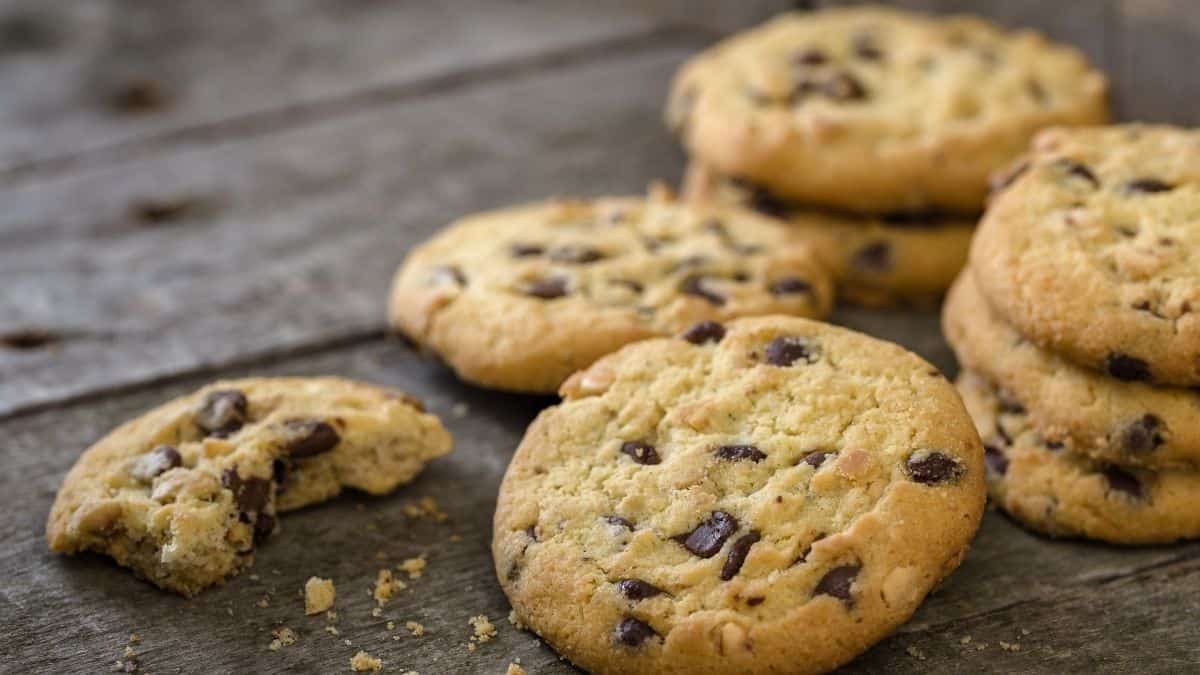
What are hunger and fullness cues?
A hunger or fullness cue is your body’s message saying “Hey! I need some energy!” or “Hey! I’ve got enough energy!”. In essence, it’s your body’s natural way of regulating how much you eat to have the right amount of energy (i.e. food).
Just like we can send messages to our friends and family via email, text, or phone call, our body has different ways of communicating from one organ system to another. A lot of our messaging is done through hormones.
How much we feel hunger and fullness is coordinated by two different appetite hormones that our body produces, including leptin and ghrelin. Let’s briefly discuss both of those, shall we?
Leptin: The fullness hormone
What Is Leptin?
Leptin is known as the “fullness hormone.” It’s a hormone that is made by the fat cells of our body, sending us the message that we’ve had enough energy (i.e. food).
Leptin levels are low when your body needs energy, signaling hunger. On the flip side, leptin levels rise as you consume more food, which is one part of how your body regulates your energy intake. Leptin also rises with the number of fat cells in your body.
Now, here are a couple of important things to know about leptin:
First, leptin levels can be influenced by several things, including weight loss. Weight loss can actually decrease the amount of leptin in the body. This may contribute to the fact that we see so many diets “fail”, resulting in weight gain in the long run.
When you diet, your body starts to notice “Hey… I’m not getting enough energy… something is wrong…” So, your body tries to fix it by decreasing your amount of leptin – keeping you hungrier – in order to encourage you to eat more. More food = more energy.
If you’ve ever been on a diet before and realize after a little while that you get hungrier and hungrier, this can explain it! It’s not your lack of willpower, it’s your body literally trying to save itself.
Also, while you might think that those who have more fat on their bodies would have high leptin levels and therefore lower appetites, that’s not always the case. One can also develop leptin resistance, meaning that even though their fat cells are producing leptin, the message leptin is saying of “Hey, I’m full now!” isn’t being received. It’s like getting a bunch of text messages with abbreviations and emojis that you don’t understand.
What Can Be Done About Leptin Resistance?
The research here is unfolding, and more needs to be done. However, I firmly believe that the biggest impact that we can have to stop leptin resistance from happening is to end dieting and restrictive tendencies. We now better understand that dieting leads to weight gain in the long run, which means more fat cells, which may mean a higher likelihood of leptin resistance happening.
Leptin resistance and leptin’s influence on hunger and weight is still being studied. What we do know is that leptin levels are influenced both by the total amount of fat tissue on your body, especially around your belly (more fat tissue = higher circulating leptin levels) as well as the total amount of food you eat (too little energy, such as in dieting or fasting = lower leptin levels).
When the leptin levels are out of balance, your body’s response might not be so predictable.
Exercise can also help reduce circulating leptin levels, which could also be of benefit for those with leptin sensitivity. The important thing to keep in mind is that you still need to nourish your body; if you are in a calorie deficit, your body is going to act to protect yourself from starvation and keep tweaking your leptin and hunger levels to keep your body safe, i.e. conserve energy.
I’d suggest giving my blog post on the set point weight theory a read if you’re wondering more about the topic of weight. Also, my post on wanting weight loss and intuitive eating will be very helpful!
We will go more into detail later in this post on some other things you can do to help you feel more satisfied so you can stop eating when full. Leptin resistance doesn’t translate to “can never feel fullness” there are other ways to notice when your body has had enough to eat, which like I said, we will discuss.
Next hormone to talk about: ghrelin!
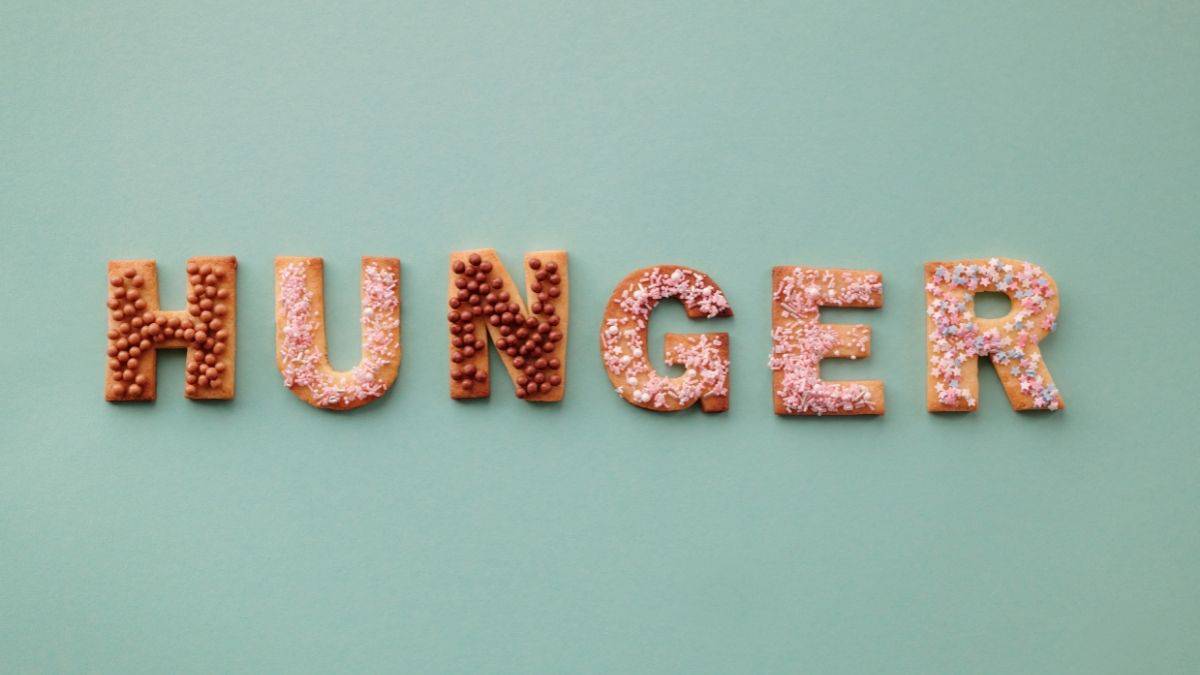
Ghrelin: The hunger hormone
What is ghrelin?
Ghrelin is essentially the opposite of everything we just discussed about leptin; it’s the hunger hormone. Ghrelin is secreted from the stomach mainly to tell your brain, “okay, need some food!” It will then lower as you give your body food.
When I was in school learning about these hormones, I kept getting them backward until I pictured Tony the Tiger from the box of frosted flakes saying, “They’re grrrrrrreeat!” and picturing ghrelin as a hungry tiger. Never confused ghrelin and leptin again after that!
Ghrelin is at its peak prior to a meal – Hey!! It’s TIME TO EAT – and is at its lowest about one hour after a meal.
So, if it dips about one hour after a meal, how the heck are you supposed to know when to stop eating?! Let’s chat about that.
How does your stomach know it’s full?
As I said, ghrelin production decreases as the meal goes on. As the hormone levels drop, the brain is getting fewer nudges to eat. And while you might think that these messages are in the stomach only – such as a feeling of being physically full – there are other more subtle cues that may signal that your stomach is full and satisfied with what you’ve eaten.
These signals of fullness include:
- no longer paying as much attention to your food
- losing interest in the meal
- the food no longer tastes as good (usually the first few bites taste BETTER as a way for your body to drive you to keep eating. But as you get energy, the intense taste wanes)
- physical fullness or distention in your stomach
- feelings of boosted energy, and/or a relaxed and pleasant mood
Identifying fullness is more about a collection of feelings you may notice and experience, rather than just the solitary feeling of your stomach. And fullness is totally unique to every person! You might feel more of the physical signals, like stomach fullness, someone else might feel more mental signals, like becoming distracted and losing interest.
For me, I tend to notice that the meal has less “wow” factor when I am approaching fullness. It might still taste good but just not AS good.
What else influences when you stop eating
So far we’ve covered some of the hormonal signals that influence when we eat and how much. Like most things with nutrition, the full picture is a bit more complicated than that.
There are many factors that influence what we eat. Another factor of how much we eat, what we eat, and when we stop eating has to do with our emotional state before we begin eating. Are we calm and content and not too hungry on the hunger scale?
Or have you entered the danger zone of being too hungry and emotionally exhausted? If so, no one can make a “good” decision in the heat of the moment – even a dietitian!
It could be that you’ll have more pleasant eating experiences if you engage in more emotional self-care.
Emotional self-care for your mind is just as important as joyful movement is for your body. Most of us are learning how to do emotional self-care and to continue to make it a priority. But when you do, you’re going to find that your eating experiences are more calm and controlled…and even joyful. Plus, you’ll be less likely to use food as a coping mechanism (i.e. eat emotionally!)
Now that we’ve talked about when we can stop eating, based on hormones, when should we stop eating?
When should we stop eating?
I want to be careful with the word “should” here because I don’t want you to “should” yourself. Anyone else a fan of Sex and the City when Carrie talked about the importance of not “should-ing all over yourselves.” She says,
“I wonder if should was another disease plaguing women…
How do we separate what we could do and what we should do?
And here’s an alarming thought:
It is not just peer pressure. It seems to be coming from within.
Why are we should-ing all over ourselves?”
For me, this is a caution against falling into the diet trap and doing something because you think it’s “right”; I want you to truly understand your own body’s cues.
I teach the girlfriends inside of my membership, The sociEATy, to use the hunger scale to help identify fullness & satiety to understand how to stop eating when full.
I have an entire post for how to use the hunger scale if you’re new to it. The idea is to find your “comfort zone.” Typically, this is about a 6-8 on the hunger scale but it is different for everyone and it can range from one day to the next.
Should you always stop eating as soon as you feel fullness cues? Let’s talk about that common question next.
Should you stop eating when you’re full?
It’s super important to note that just because your stomach is full, doesn’t mean that you necessarily have to stop eating. There is a difference between being full and being satisfied.
Being full means just that, that your stomach is full. Whereas being satisfied means that your body (and mind!) has what it needs.
For instance, if you eat a giant plate that only consists of veggies, your stomach might be full but your body may not have acquired enough energy to fuel longer than the next seven minutes. Veggies typically have a low energy density, i.e. low calories.
Or maybe you filled up your belly with cereal; it might taste great, but because many kinds of cereal are just simple carbs, you might not feel satisfied for as long as if you’d had eggs (a protein boost) or full-fat yogurt with the cereal (protein and fat).
Also, your body might be craving one thing, like a juicy burger. But, if you force-feed it a salad, you’re likely not going to feel satisfied. This will then cause you to continue to search for something to “hit the spot.” And, in the end, when we do this we’re likely to actually consume more energy in the long run AND feel even more full and bloated. No bueno. Just eat the burger.
So, all of that being said, if you’re feeling full but not satisfied, it’s okay to eat a little past fullness. This will help you also mentally, as you won’t be continually thinking about the food you’re missing out on. The key here is to find a comfortable balance of this. I’m a big fan of using mindful eating exercises when this happens!
Sometimes it might also be a good idea to eat past fullness out of “practical hunger” (which we will talk more about in a second!) if you know your body could use more energy.
How long should you feel full after eating?
There is no gold standard of how long you should feel full after eating, and it can vary day to day. Our body’s energy needs differ each day depending on our activity level, our hormones (hello, period week!), and our mood.
It’s super normal to feel hungry every 3-5 hours, but this can also be impacted by the foods that you eat. Eating foods that consist of all macronutrients (carbs, fat, and protein) and also being sure to include some sources of fiber, can really help provide some staying power to mealtimes.
I have a blog post all about meal planning for intuitive eating that has some other great info on this! These tips can also be used for that leptin resistance that we talked about. Making sure that you’re including some feel full fiber, protein, and fats!
Should I ever eat if I’m not hungry?
Yes, actually. Again, I don’t love the word “should”, but there are times it is worth eating even if your body is not giving you specific signals to do so.
This is a great time to bring up a concept called practical hunger. Practical hunger lets you use your noggin to help make the best decisions for your eating, including things like your schedule and availability of food.
For example, let’s say that you are about to start your long commute to work, but know that you get carsick if you have an empty stomach. Maybe it is too early in the morning for you to really feel hungry, but you know that a snack is going to help your body feel as good as it can on a workday.
Or maybe a two-hour Zoom call gets scheduled over when you usually eat lunch. And if you wait until after that meeting to eat, you know that your focus and mood will decline rapidly during that long meeting. So, you eat some lunch before it starts because you know it’s in your body’s best interest.
For your complete guide to practical hunger and how to implement it, check out this post: Practical Hunger: What It Is & How To Use It.
How do I know if I am eating enough?
Feeling your fullness can be really tough at first and you probably won’t hit the nail on the head.
Think about it this way, you’re an archer and you’re working towards hitting the bullseye on the target. Of course, you won’t get there the first time you shoot an arrow, but the more you practice the closer you get. Each meal is a chance to learn more about how to interpret your body’s hunger and fullness cues.
Feeling actually full & satisfied might feel strange at first. It might feel like you’re TOO full. This is common because diet culture has demonized the feeling of fullness for so long. We’re used to underfeeding ourselves and have conditioned our bodies to THINK that is fullness when in reality it isn’t.
Some signals that you might not be eating enough? Low energy, super sore muscles not recovering from your workouts, getting hungry super soon after eating, loss of your menstrual cycle, brittle hair and nails, and constantly thinking about food. And? Continuing to eat past fullness may be a sign you’re not getting enough! Maybe not at the time you’re eating past fullness but possibly earlier in the day.
With practice, you can unlearn these harmful messages and build trust with your body.
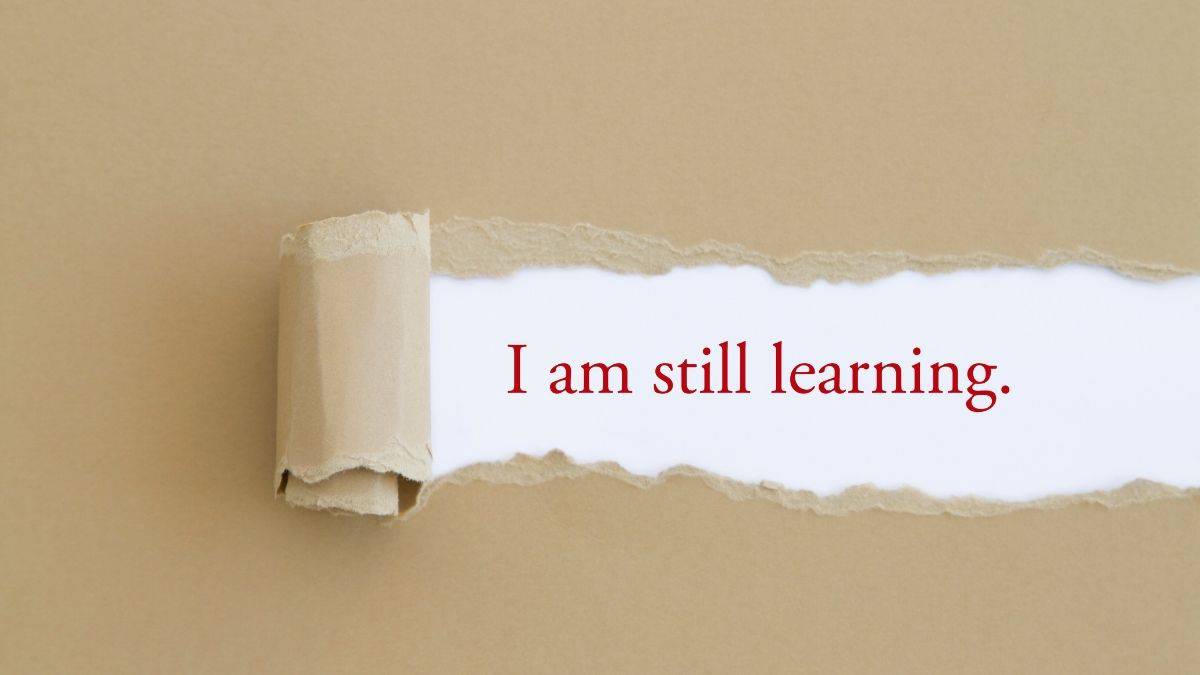
Tips: Learning how to stop eating when full
Use The Hunger Scale
Going back to the hunger scale tool that I talked about earlier, typically when you’re used to trying to eat less (i.e. diet culture obsessed) we usually stop around a 5. It’s like we give our bodies juuuuust enough to get by to the next meal. This can cause us to feel hungry soon after or to count down the time until we are “allowed” to eat again.
Play around with your portion sizes and when you end your meal. View it as an experiment. Act like a scientist and simply observe your body.
How does it feel when you eat more food at mealtimes?
Do you find you think about food less or can go longer between meals without getting hangry?
Or, try the opposite. If you find you are continually eating past fullness at mealtimes see what happens if you give yourself a break halfway through your meal to identify where you’re at on the hunger scale. Experiment with stopping at different points and make your own decision on what feels best to YOU.
Just like the archer analogy above; practice builds confidence.
Use Mindful Eating Exercises
In order to feel your fullness and notice when your body has had enough, you can use some mindful eating exercises like:
- Eat your next meal with the intent of describing it to someone else later. Notice the taste/texture/smell and so on. What was the best part of the meal?
- Take note of your emotions during the meal and how they may impact your eating. (For example, if you’re feeling stressed be aware of this and separate your fullness from your desire to soothe your stress).
- Ask yourself how the first bite differs from the fourth, fifth, sixth. This will help you identify satisfaction throughout the meal, rather than just thinking about it after.
I have an entire list of my top 10 mindful eating exercises that you might find helpful, too!
Remind Yourself You Can Always Have More Food Later
Sometimes when we are eating we focus not on how our fullness level is, but rather on the fact that we’d better eat a food while we can! For example, if you finally gave yourself permission to buy a package of Oreos and then you cannot stop eating them because you don’t usually allow them in your house. This is a scarcity mindset and is not helpful for you on your Intuitive Eating journey.
One way to combat this is to tell yourself if you’re full, you can always have more of this food later when you’re able to enjoy it more comfortably! (And if not that specific food – like if you’re on vacation – you can take elements of that food and recreate it!)
Does it matter what time you stop eating?
Honestly, I don’t even worry about time. Our bodies don’t know clocks. If you’re hungry in the evening, eat. Always honor your hunger regardless of the clock. So you have full permission to throw that “don’t eat after XYZ pm” food rule out the window!
It is ever okay to stop eating past fullness?
Yes.
Eating is not a moral activity. The main idea with Intuitive Eating is to get comfortable and even joyful with eating, food, and your own body. Intuitive Eating was never intended to be misused as another diet or rulebook.
For example, earlier we talked about the hunger scale, and that in general, we feel best somewhere in the middle of the 1 to 10 scale. But if you ever reach max fullness? That’s totally okay. Just think about enjoying Thanksgiving dinner with family and friends; it is perfectly normal and acceptable to joyfully stuff yourself with all the fixings. You didn’t mess up or make a mistake eating past your usual fullness cues.

How to stop eating when bored
I won’t go into this too much here because I have an entire blog post on how to stop eating when bored, but what I always say is to ask yourself first if you’re feeling physically hungry. If so, EAT! It’s possible to be bored and hungry at the same time.
If you’re not hungry but want to eat, ask yourself what you need. Maybe you’re looking for something to entertain you, so you could pick up a book, call a friend, etc. Give that a go and then if you’re still thinking about the food, eat it.
Remember that satisfaction piece we talked about earlier? You might be looking for some satisfaction! If you can’t stop thinking about the chocolate, eat the chocolate (or whatever food it is!) but do so knowing it won’t “solve” the boredom.
Why you feel like you can’t stop eating food
Now, if you’ve gotten this far, have applied all of the exercises I’ve suggested and are STILL saying, “Look… Colleen… I CAN’T STOP EATING!” there may be a couple of reasons for this: extreme hunger, restriction, and addiction to binge eating.
Let’s discuss all three, starting with extreme hunger.
Extreme hunger
I have an entire blog post on extreme hunger, what it is and why it happens, but basically, your body was in energy debt from dieting. And not only was it in debt but ya gotta pay interest on that. This is commonly seen after an eating disorder, like anorexia, but can be experienced by people of all shapes and sizes.
You are restricting
When we say we can’t have a food, we want it even more. It’s like your body says “My gosh, they’re telling me this is so BAD so I’d better get enough while I can now before it’s taken away!” This happens when we both restrict the food physically (i.e. not letting yourself eat cake) and also when we even just have thoughts about restriction!
The key here is you truly need to give yourself unconditional permission to eat ALL foods. Yes, even those ones deemed “unhealthy” by diet culture!
I suggest getting yourself a copy of the Intuitive Eating book (which is, like, the food freedom bible) which really talks more about this. I also have a book list of 5 other Intuitive Eating books that I recommend for truly learning to see all foods equally!
Faux food addiction
Okay, so this might get controversial. I know people out there are dead set on food addiction being a thing. There is even a Yale Food Addiction Questionnaire (YFAQ), for goodness sake! Surely it must be legit… right?
Well, Gorgeous, no. Firstly, the YFAQ does not take into consideration food restriction or dieting, which can lead to feelings of addiction towards food. This is seen in the classic, hallmark study the Minnesota Semi-Starvation study. A group of men were deprived of food and as a result, became obsessed with it.
In addition to the obsession when they were finally allowed to eat food again (i.e. went off of the diet) they were warned not to “overdo it” but well… their biology was telling them they NEEDED food. So? They went whole hog. One man actually had to go have his stomach pumped because he said he just “couldn’t satisfy the craving by filling up his stomach.”
One study on rats found that rats who had unlimited access to sugar and both their regular more nourishing “chow” as they called it, had a more “moderate” intake of the sugar, without binge episodes. However, those with sugar restriction and only intermittent access had more binge-type episodes with sugar.
Deprivation has also been shown to increase this reward system, so the less often you have sugar (i.e. you restrict it) the more likely you are to have a heightened pleasure from it. Make sense? This will obviously make you want to do it more. But it’s not necessarily the food itself that is the addiction, it’s the FEELING.
Now, if you do feel like you have Binge Eating Disorder that requires professional help I’d highly recommend reaching out to a dietitian for help!
Final thoughts on how to stop eating when full
In the end, I want you to know that learning how to stop eating when full takes time and practice.
I mean, think about it, as kids, we likely didn’t even have to think about ending our meal when we were full, we just did, unless we grew up in a clean plate household.
No matter what, as we grew up and became more and more influenced by diet culture we lost sight of our hunger and fullness cues. It didn’t happen overnight so getting those fullness cues back won’t happen overnight, either.
I am however so confident that each and every person CAN get back to that primal knowledge of how to stop eating when full! As I said, it takes time and practice, but you’ve got this!
If you’re ready to tune into your own body, build trust with food and eating and join an amazing gang of Intuitive Eaters, I wholeheartedly recommend joining the SociEATy, my private group coaching program designed to help you take strides on your Food Freedom journey. You deserve to be surrounded by women who get it and to have the guidance and support of a registered dietitian who has been there and believes in you. Join us!
XOXO
-Colleen


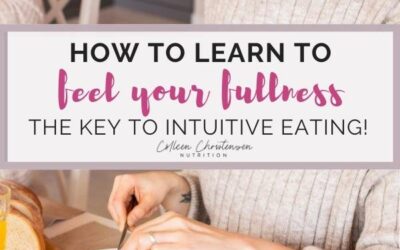
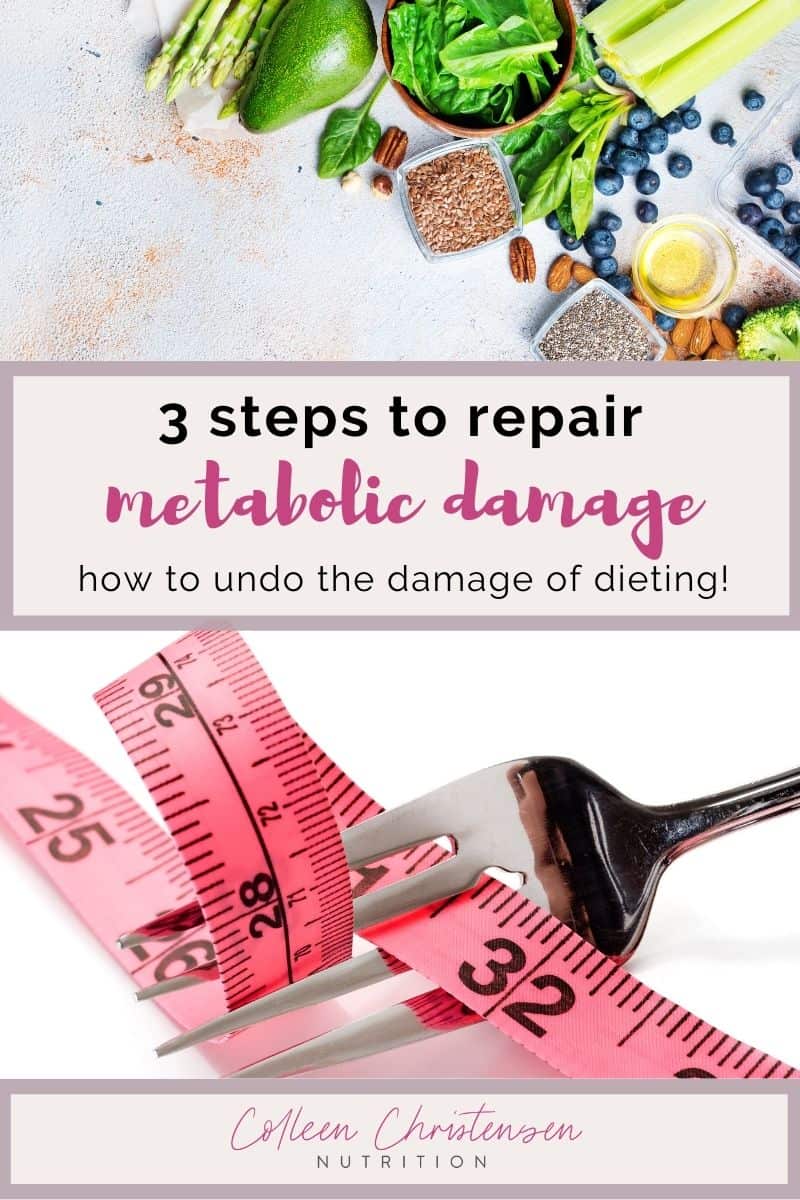
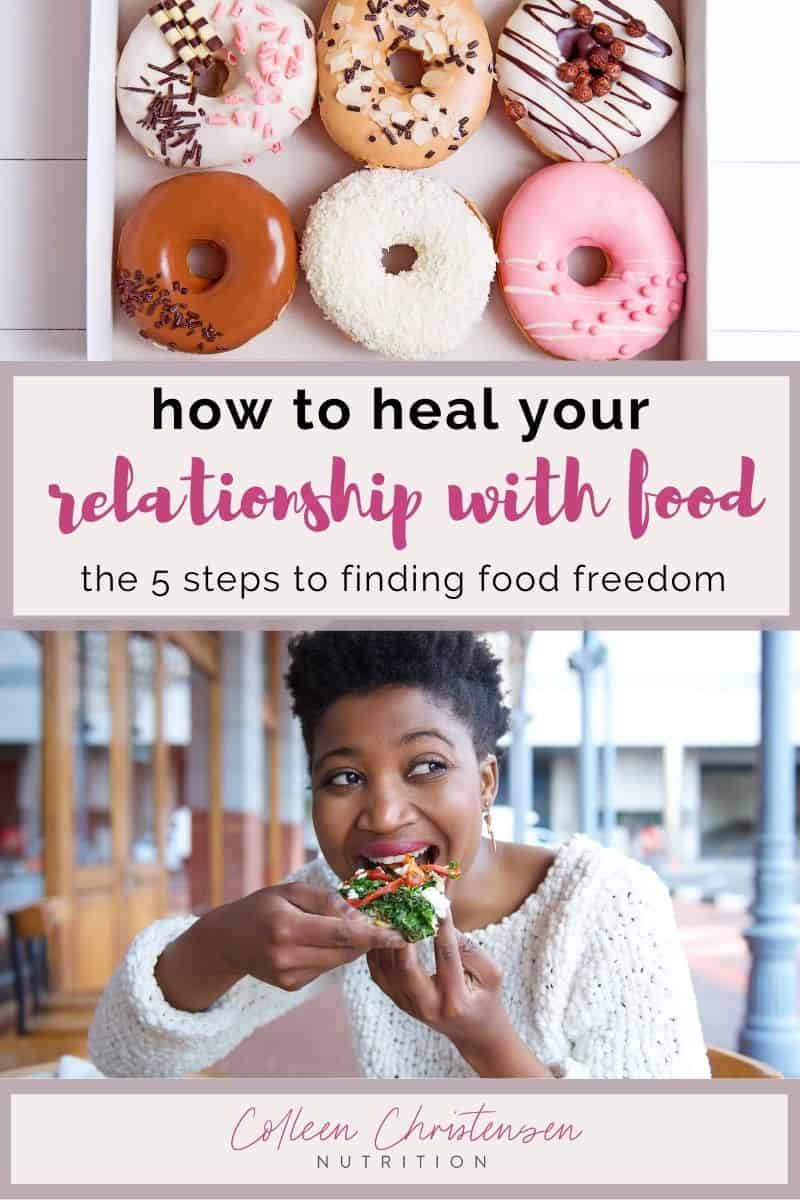
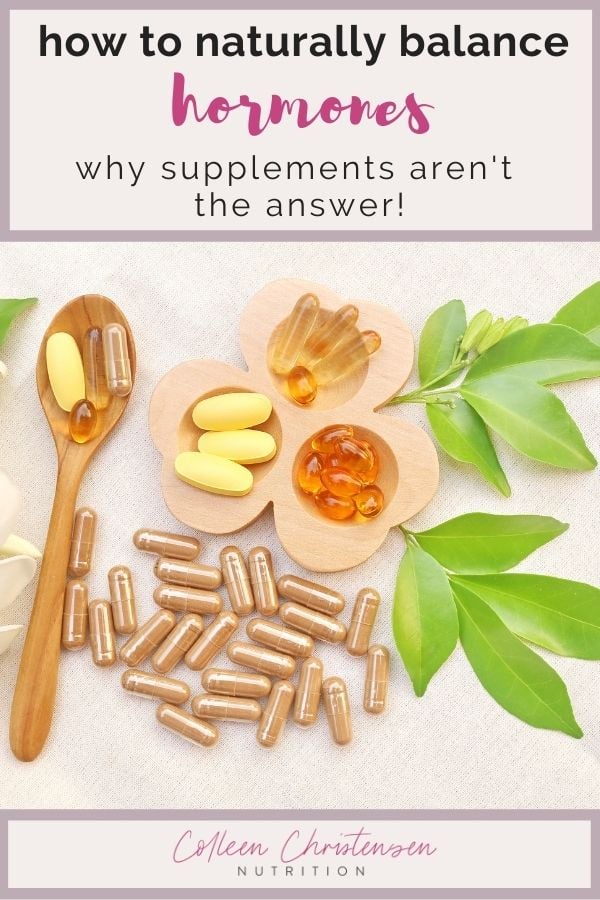
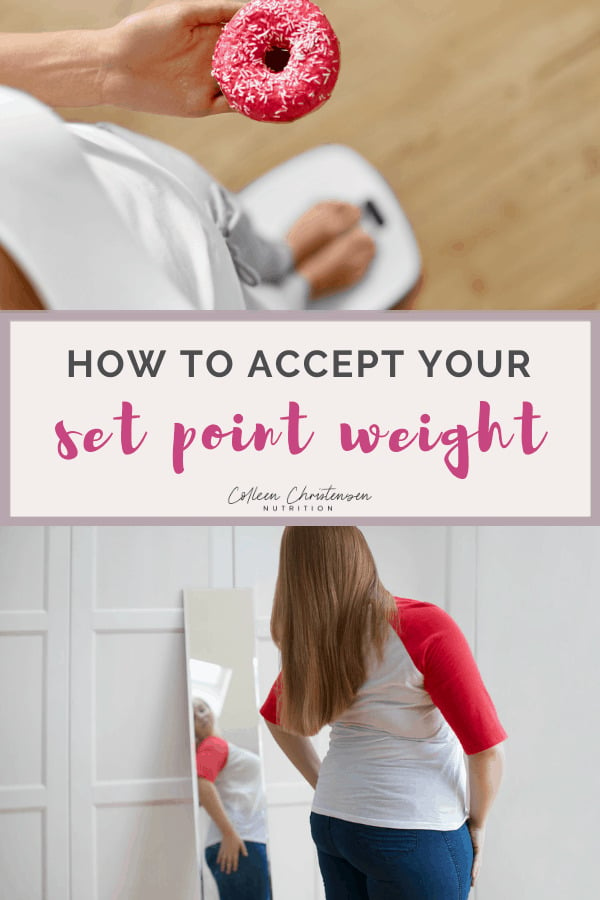
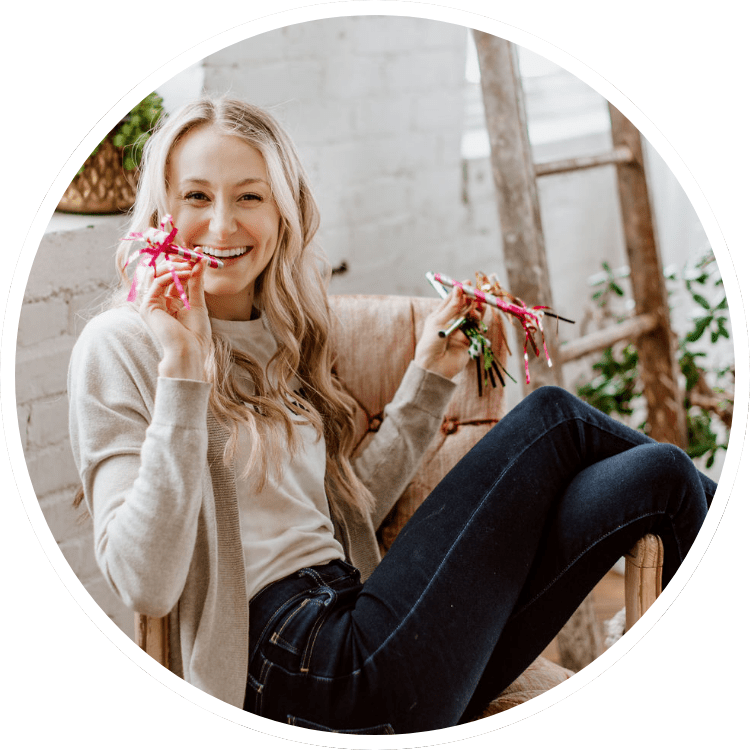
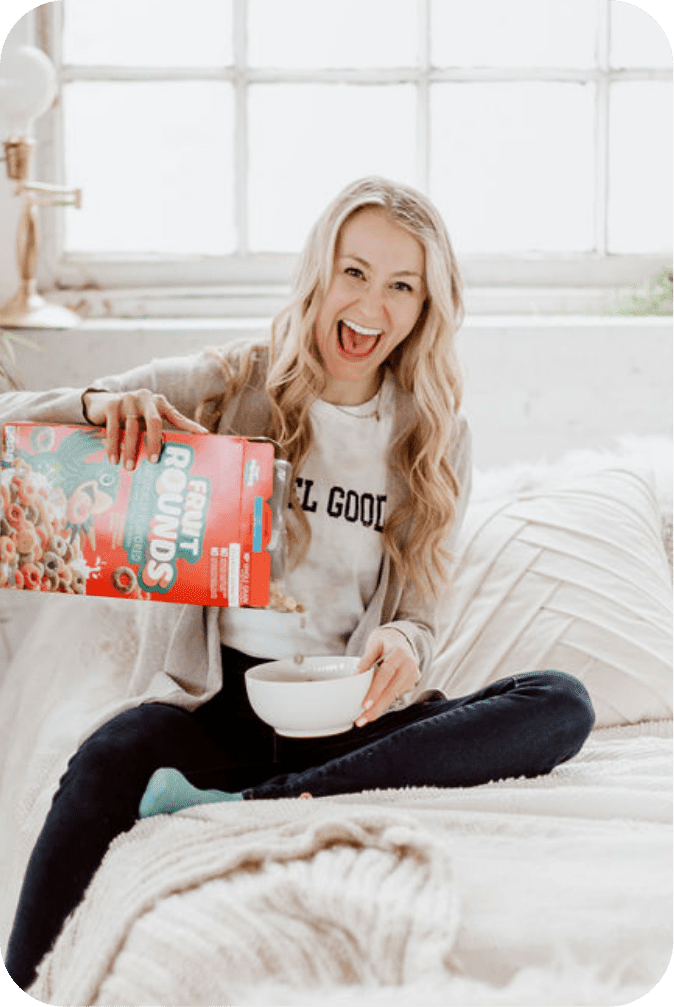
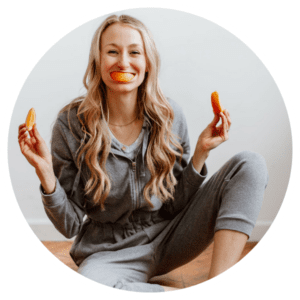
Julia says
I actually lost all my internal cues such as fullness from anorexia. The opposite happened to me—-when I restricted, I no longer became hungry and lose pleasure/reward from food (I never enjoy food or have any desire to eat) 🙁
Colleen says
I’d highly recommend working with a dietitian whenever struggling with an eating disorder!
Sending you all of the positive vibes!
Inge says
I’m recovering from BED and have completed inpatient in June. It’s been going really well with some lapses, but not a single relapse!
I find that boredom and frustration eating are two things that keep biting me in the butt (my own fault for not using coping mechanisms) but other than that, I love healthy food.
And all my meals are super healthy. Since being little I’ve preferred food over sweets.
But I’m noticing that when eating this healthy, I don’t want to leave any on my plate. When I’m eating a loaded veggie sandwich I might feel full already after half of it, but I feel almost “sad” to leave the rest of the delicious nutrient dense sandwich on the plate, so I finish it as well and often feel just a tad overfull.
How can I combat this? I really don’t like “leaving veggies” (personal thing, not diet related lol)
Colleen says
Hi there! So happy for your progress! For those with an ED I highly recommend reaching out to a dietitian for help! Elyse Resch, one of the co-authors of intuitive eating has a great article on feeling sad after a meal. Try googling “The sadness of saying enough Elyse Resch”!
Heidi says
Thank you for that reading recommendation. Elyse’s writing really rang true for me, and gives me a next direction to explore with my therapist.
Colleen says
I’m so glad to hear this, Heidi!
Sarah says
I grew up in a ‘clean plate’ household, and the absolute worst thing we could do was waste food. I really struggle with just stopping when full, and can’t stand throwing out food, or leaving any on my plate.
Colleen says
I can’t stand throwing food away either! I always put it into a small container and use it in a wrap, salad or omelette!
Rebekah says
Thank you for this article. I am just starting on my journey to intuitive eating and hoping to join The Socieaty when you open it up again. I am going to try and notice if my interest in food decreases and try checking my hunger scale halfway through my meal. Thanks again for the guidance.
Colleen says
I’m so glad it was helpful! Can’t wait to see you inside of The SociEATy!